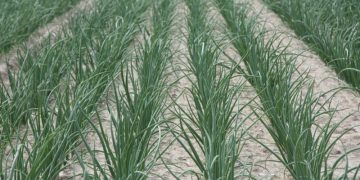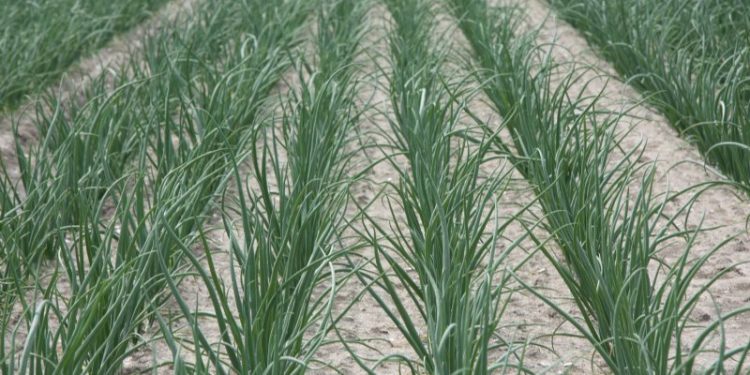There is a good chance that the vydate tool will no longer be available from 2024. Wageningen University & Research (wur) expects onion growers to eventually have sufficient capacity to cover these losses.
Researchers at WUR commissioned the Uireka Network Project to list the possibilities of alternatives to vydate in onion cultivation. Particular attention was paid to the control of parasitic plant nematodes, as well as the control of some insect pests.
Researcher Leendert Molendijk explained the WUR findings during the onion-themed day of the Northern and Central Netherlands Agricultural Fair in Dronten, Flevoland, on Tuesday. Based on information from Corteva, Molendijk expects Vydate to still be available in the next growing season. ‘But as of 2024, the outlook is not favorable. Due to additional requirements, the permit is expected to expire then.’
“Vydate re-registration is on the loose”
By the way, the researcher suggests that Dutch onion producers can do just fine without Vydate. “We often lost important resources and each time we found solutions. Our country’s cultivation is at a high level. We have smart growers who can handle it. In the end, it may even benefit our competitive position.”
No clear replacement
To control insects in onions, vidat applied as granules at sowing provides primarily protection against bean fly and onion fly in the first six weeks of the growing season. For travel, according to Molendijk, this treatment has little to no effect. ‘There are alternatives to bean fly and onion fly, but there is no clear replacement for Vydate. First of all, growers should look for a solution in an integrated approach.’
Integrated is also the key word when it comes to nematode control in non-vidat onions. The researcher believes that the action of the biological agent Nemguard is still unclear at the moment. ‘There are claims of some effect against nematode species, but there is still a lack of conclusive research to adequately confirm this. We still have important questions for the clearance holder.’
For Molendijk, an integrated approach to nematode management is part of integrated crop management. This is based on the following basic principles: construction plan, selection of variety and cultivation method, exploration and sampling, tillage and purposeful control. ‘To approach nematode control, growers should draw up a comprehensive plan based on the nematode schedule. It also outlines which nematodes cause the most damage to onions.’
Avoid Sensitive Prefruits
As examples of the control possibilities for onion-integrated nematodes, the researcher starts with root nodule nematodes. “Meloidogyne hapla is mainly found in northern growing areas. If sampling shows that this nematode is in the soil, then monocots forefruits such as cereals may help reduce the pressure. In M. chitwoodi, M. fallax and M. naasi, on the contrary, they should avoid herbs or other sensitive front fruits.’
For stem nematodes, flooding appears to be the only effective control solution, and this is in fact also the case for M. chitwoodi and M. fallax. Free-living nematodes such as trichodorids breed strongly on grasses and it is good to lower the water table to control them. Damage by the root nematode Pratylenchus penetrans can be easily limited when growing tagetes in a crop rotation, reports Molendijk.
“Ultimately, these are just a few of the many actions that onion growers can take. Various decision support systems are available for more information on Vydate replacement options. They provide the basis for a comprehensive nematode action plan and also take into account soil fungi. ” explains the researcher.
Biobased construction webinar is on the rise, is it an opportunity for farmers?
Biologically based construction is in vogue. The government wants to push for it. This opens up opportunities for farmers involved in farming. But what exactly is a biologically based design? What does the politician want to achieve by this? And what can cultivation, research and the chain do about it? Is it possible to profit from growing fiber crops? Bo Akkerbau, the Akkerbouw Network of Sustainability Practitioners and Nieuwe Oogst are organizing a webinar for arable farmers about the opportunities this new development offers.































